George Sidney - and Frank Sinatra’s - PAL JOEY (1957) at Film Forum, Sunday Feb 23
“Christ! I knew Bix!”
For more information and tickets - click here
“It is now post time!”
I’m honored to have been asked to introduce Pal Joey (1957) at Film Forum this Sunday, February 23 and Tuesday, February 25. I decided to re-read the book - and yes, I make a point to refer to it as a “book” as opposed to a “novel” - as well as the script to the 1940 Broadway musical, which were both conveniently reprinted together in 2016 with a fine introduction by the literary critic Thomas Mallon. Alas, the first thing Mr. Mallon does right out of the gate is trash the movie. He’s entitled to his opinion, of course, but after re-reading both the book and the libretto for the show, I feel more than ever that the 1957 Pal Joey is a truly great movie musical with a wonderful performance by Frank Sinatra at its center as well as excellent work from its two non-singing but nonetheless highly musical leading ladies, Kim Novak and Rita Hayworth, whose vocals were provided by, respectively, Trudi Erwin and Jo Ann Greer. In addition, it’s an excellent cinematic realization of the world of Joey Evans, as created by John O’Hara.
The most surprising aspect of the three manifestations of Pal Joey is exactly what they do and do not have in common. By that I mean: The original John O’Hara short stories, which started appearing in The New Yorker in 1938 and were collected into book form in 1940; the 1940 Broadway musical by Richard Rodgers, Lorenz Hart, and also John O’Hara, starring Gene Kelly in his big time Broadway debut; and the 1957 Columbia Pictures movie musical, directed by George Sidney and starring Frank Sinatra.
The movie has been criticized for changing too much from the show, but in actuality, the movie sticks a lot closer to the show than the show hews to the book. The major element of the original stories used in the show is essentially the character of Joey Evans himself: in the stories, he’s a singer and nightclub emcee; when producer George Abbott, along with songwriters Richard Rodgers and Lorenz Hart, decided to cast the young Gene Kelly in the lead, they changed the character to make him a dancer; but then in the movie, they made him a singer again, as in the original stories.
Other than Joey, the protagonist himself, the only element recognizable from the book in the show is the chorus girl Linda English, who is a very minor character, nothing like a leading lady or even a co-leading lady. There’s no Vera Simpson, no older rich lady socialite getting horizontal with the so-called hero, and there’s no Chez Joey, that plot doesn’t exist.
The one major scene that appears in all three incarnations of Joey - book, show, movie - is the sequence where he and Linda stand in front of the pet shop and Joey tries to charm Linda by talking of his late dog, named variously “Skippy” or “Snuffy.” As usual, Joey is such a lunkhead that his own such tricks inevitably backfire on him.
In the show, Vera is still very much married while she’s carrying on with Joey, and she only ends the relationship when a sleazy agent threatens to blackmail her. In the movie, Rita Hayworth as Vera is a widow who breaks up with Joey when it becomes clear he’s more attracted to the other woman, Kim Novak as Linda. The basic plot of the movie is essentially a love triangle between Joey, Vera, and Linda, but that aspect is barely present in the show;. Linda isn’t much of a threat to Vera.
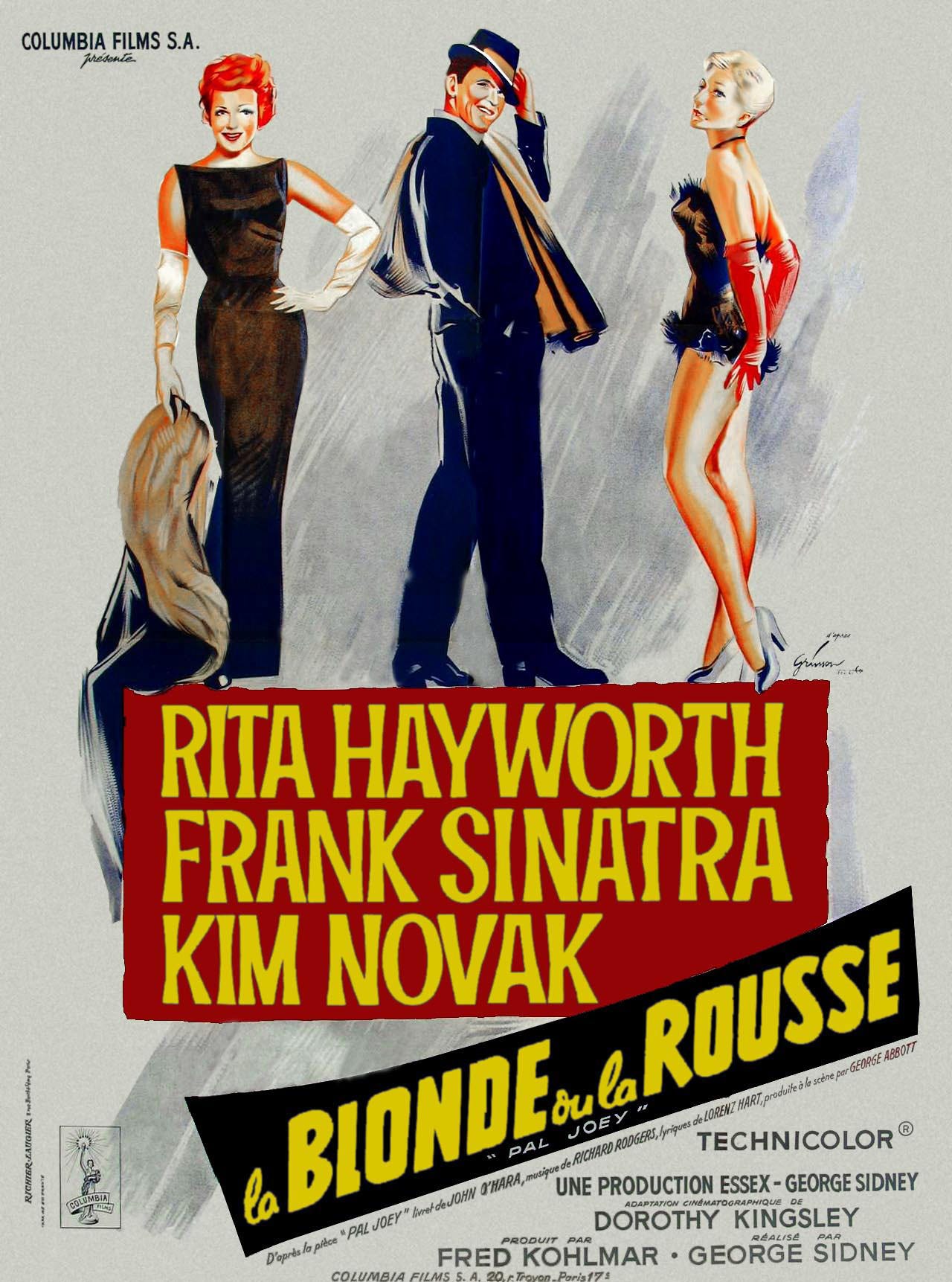
One of Mr. Mallon’s primary reasons for describing the film - in gloriously “Joey”-esque lingo as a “stinkeroo” - is that he felt Sinatra was too old to play Joey Evans. However, in the final story, “Reminiss??,” Joey talks about hanging out with Bix Beiderbecke. This would make him at least in his mid-to-late thirties, a survivor of the jazz age, at the point when the stories take place, circa 1938. Sinatra was 41 when he made the movie.
The line in the book is, “Christ! I knew Bix!” At one point Joey talks about wanting to be a drummer, compares himself to Chauncey Morehouse and Dave Tough. Clearly, O’Hara knew a thing or two about jazz drumming.
Other than Pal Joey, O’Hara is best remembered in the annals of American music for his much-quoted line about the death of George Gershwin. (If you haven’t heard it lately, it’s “I don’t have to believe it if I don’t want to.”) It’s refreshing to know that, like his colleague F. Scott Fitzgerald, he was enough of a fan of jazz and contemporary music to not only know all about Bobby Hackett, but even to distinctly remember that great trumpeter’s unlikely tenure with the infamous sweet band led by Horace Heidt.
Sinatra also sharpened the character by leaning into the parallels between Joey Evans and the great Joe E. Lewis. In the story “A Bit of a Shock,” Joey Evans talks about aspiring to be a class act like Joe E. Lewis, who not only sang but told stories and was a great all-around entertainer. Sinatra’s previous film, released just a few months earlier, was the movie biography of Joe E. Lewis, titled The Joker is Wild, so he definitely had Joe E. on his mind - which he always did anyhow. Joe E. Lewis was one of Sinatra’s major role models and inspirations
Screenwriter Dorothy Kingsley made Joey more like Joe E. by dint of the two women in his life: in reality, Joe E. Lewis had major relationships with two women, one the actress Martha Stewart (no, not that Martha Stewart!) and the other an heiress, a so-called “society dame” - she’s called “Letty Page” in The Joker is Wild - so in a sense, the three-way between Joey, Linda, and Vera was carried over from Joe E. Lewis. In a sense, The Joker Is Wild and Pal Joey are a great double feature in that Sinatra essentially portrays a version of his hero, Joe E. Lewis, in both.
Richard Rodgers himself was fiercely proud of Pal Joey, and felt it was a major step in the evolution of the musical theater; essentially part of the lineage between Show Boat, Porgy and Bess, and eventually his own Oklahoma! From a modern perspective, scholar Ben West, in a perceptive essay about the show, describes it as ultimately “immature.” Whatever its faults, the Sidney-Sinatra movie adaptation never feels like that - conversely, it’s among the most mature movie musicals ever produced by the old Hollywood studio system.
For Ben West’s highly perceptive essay on the show itself, click here.
For my own Substack essay on the revised version of Pal Joey that played City Center Encores! In 2023, click here,
For more information and tickets for the Film Forum screenings, click here
Sing! Sing! Sing! : My tagline is, “Celebrating the great jazz - and jazz-adjacent - singers, as well as the composers, lyricists, arrangers, soloists, and sidemen, who help to make them great.”
A production of KSDS heard Saturdays at 10:00 AM Pacific; 1:00PM Eastern.
To listen to KSDS via the internet (current and recent shows are available for streaming.) click here.
The whole series is also listenable on Podbean.com; click here.
SING! SING! SING!
Nat King Cole: "We Are Americans Too" (“Assault on a King”)
(BLACK HISTORY MONTH 2025-02-18)
Download: <or> play online:
THE REAL AMBASSADORS with special guest Ricky Riccardi
(Black History Month 2025-02-17)
download: <or> play online:
The Don Redman Songbook
(SSS #135 2025-02-15 Black History Month)
download: <OR> play online:
Pioneering African American Female Songwriters w Dr. Michael Garber
(BLACK HISTORY MONTH - SSS #134 2025-02-08)
download: <or> play online:
“Strange Fruit”: Billie Holiday | Abe Meeropol | Earl Robinson
(BLACK HISTORY MONTH 2025-02-05)
download: <OR> play online:
Louis Armstrong: Satchmo's Race Problem (with Ricky Riccardi)
(BLACK HISTORY MONTH 2025-02-03)
download: <or> play online:
BLACK HISTORY MONTH: The Black Experience in WW2
(SSS #133 2025-02-01)
Download: <OR> play online:
Bobby Hackett Meets the Great Singers
(SSS #132 2025-01-25)
Download: or play online.
Salute to Fruit, Part 1 - Stealin' Apples
(SSS #131 2025-01-18)
download: or play online:
Get Happy! The Harold Arlen-Ted Koehler Songbook
(SSS #130 2025-01-11)
Download: <or> play online:
The Buzz! (Jazz Journalists Association)
Neal Tesser interviews Will Friedwald
Listen here.
Let's Have a Party! NEW YEAR’S PARTY SPECIAL
(SSS #129 2025-01-04 )
download: or play online:
Best of 2024 Jazz Vocals
(SSS #128 2024-12-28)
download: <OR> play online:
Dylan Goes Eclectic! Bob Dylan Jazz & Pop Mixtape w ELIJAH WALD
(SSS #127 2024-12-21)
Download: <or> play online:
(for a more full list of recent radio shows, click here.)
SLOUCHING TOWARDS BIRDLAND is a subStack newsletter by Will Friedwald. The best way to support my work is with a paid subscription, for which I am asking either $5 a month or $50 per year. Thank you for considering. (Thanks as always to Beth Naji & Arlen Schumer for special graphics.) Word up, peace out, go forth and sin no more! (And always remember: “A man is born, but he’s no good no how, without a song.”)
Note to friends: a lot of you respond to my SubStack posts here directly to me via eMail. It’s actually a lot more beneficial to me if you go to the SubStack web page and put your responses down as a “comment.” This helps me “drive traffic” and all that other social media stuff. If you look a tiny bit down from this text, you will see three buttons, one of which is “comment.” Just hit that one, hey. Thanks!
Slouching Towards Birdland (Will Friedwald's SubStack) is a reader-supported publication. To receive new posts and support my work, consider becoming a free or paid subscriber.
Slouching Towards Birdland (Will Friedwald's SubStack) is a reader-supported publication. To receive new posts and support my work, consider becoming a free or paid subscriber.

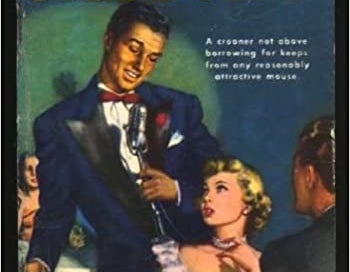



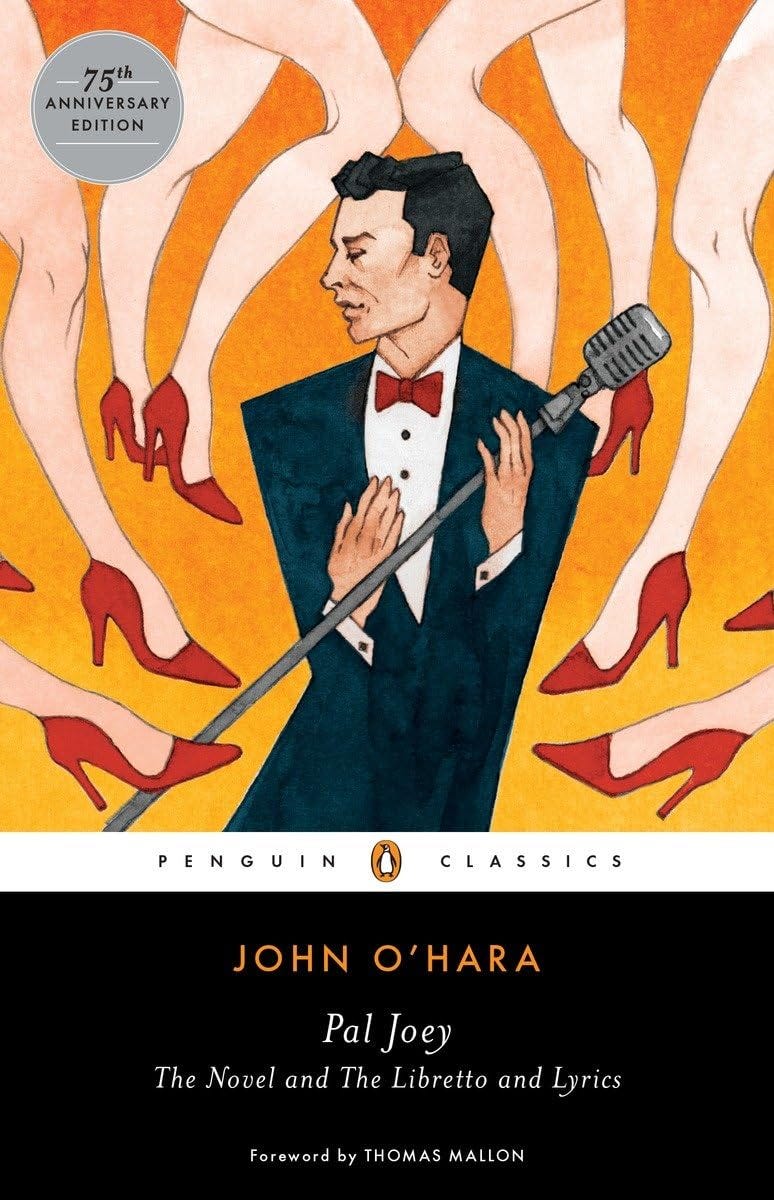
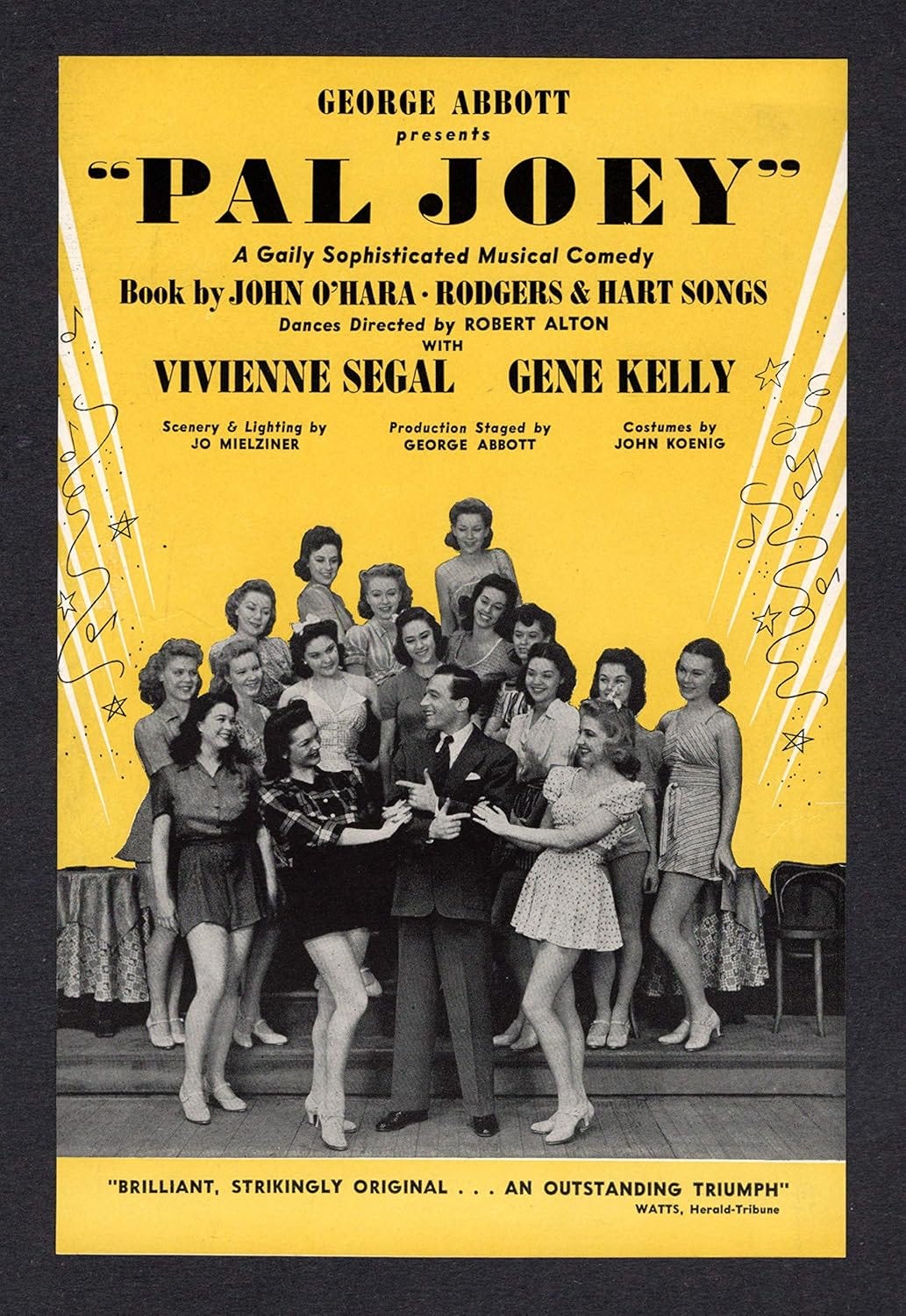
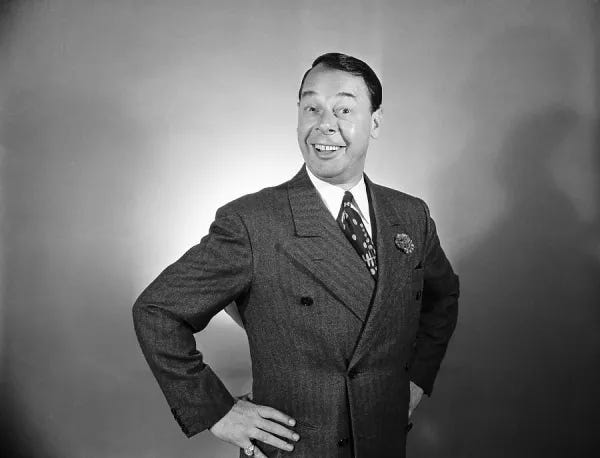
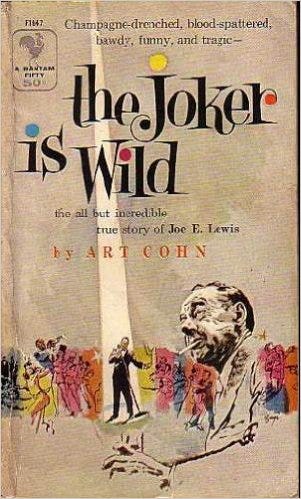

from Daniel Weinstein - I sent him an advance copy of the post and he made the following suggestions: "You might want to address the use of songs from the original stage production (or lack thereof), along with other Rodgers and Hart songs from other shows, in the movie. Also, there was a stage revival of Pal Joey in 1952, I believe, that was a bigger hit than the original 1940 production. That revival, and a contemporaneous Columbia album of the show, probably added to the viability of making it into a movie, regardless of its resemblance (or not) to the stage show. I have the short stories in a large John O'Hara "Reader" that I inherited. In reading them, I was struck by the reference to "You Go to My Head" as the most popular ballad of 1938. Of course, that's not a Rodgers and Hart song. O'Hara was indeed a jazz fan, though I bet he didn't keep up with the times, when bebop reared its pretty head! As a conservative newspaper columnist in the 1960's, I believe he lost his cachet as a "hip" fiction writer of the 1930's and '40's. P.S. His novelette, in the same "Reader", called "The Doctor's Son", is a true to life depiction of the effect of the "Spanish Flu" epidemic of 1918--19 on the coal country of Pennsylvania. O'Hara himself was a doctor's son in that part of the country, and obviously knew exactly what he was writing about."